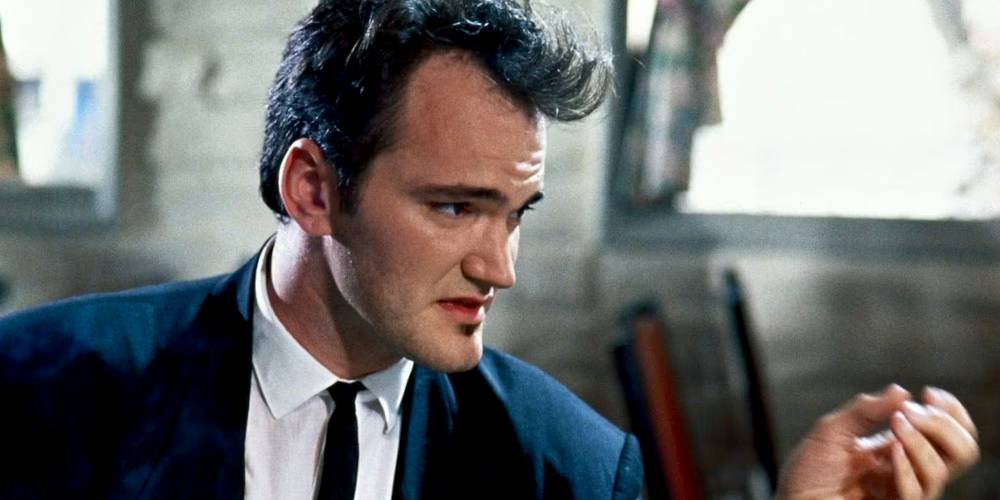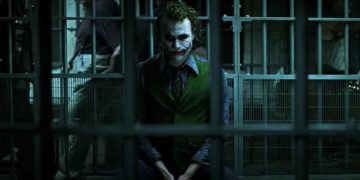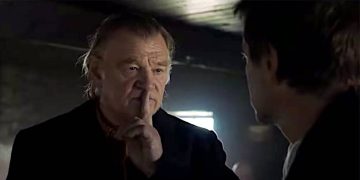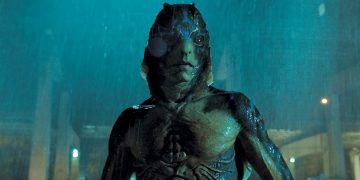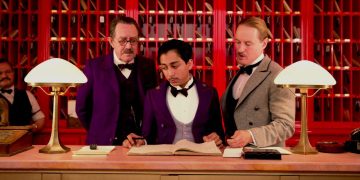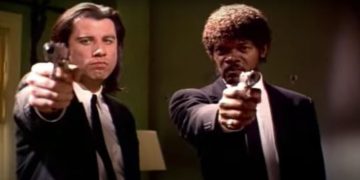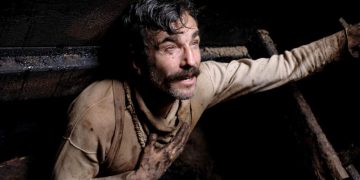While there have been so many humdrum blockbusters lately, there have also been plenty of fresh, exciting, and unique films in recent years—many of them by so-called auteurs.
In the 1990s, a new wave of auteur filmmakers emerged, creating iconic films that stood out with their own distinctive elements of style, so much so that we can watch any particular movie by a given auteur and know that it could've only been made by them.
Here are my picks for the best auteur filmmakers of the 21st century. Some of them may have started their careers in the 1990s, but it's their work in the 2000s and onwards that earned them a spot on this list.
7. Christopher Nolan
The film world is divided on Christopher Nolan—you either love him or you hate him. Very rarely do you find people, like myself, who sit somewhere in the middle. To me, both sides have valid arguments.
Christopher Nolan burst onto the scene with Following (1998), an independent neo-noir film that paved the way for him to create Memento (2000). From there, it has been hit after hit for Nolan.
Nolan's style as an auteur is easy to spot: cerebral plots that teeter on the edge of incomprehensibility. It's one of his main criticisms, that his films are so densely plotted that they require lots of heavy-handed exposition just so audiences can keep up.
However, that's really only true for a handful of his films, and his biggest fans would argue that it only makes rewatching his films all the more enjoyable. Overall, he's a very specific filmmaker and one of the best-known auteurs amongst mainstream viewers.
6. Robert Eggers
Robert Eggers is one of the brightest talents to emerge in recent years. After starting his career with the incredible The Witch (2015), Eggers went on to film what's basically a quintessential must-watch for any fan of Edgar Allan Poe: The Lighthouse (2019).
Shot in black and white in an unusual 1.19:1 aspect ratio, The Lighthouse is about as auteurish as any modern film has gotten.
Robert Eggers favors long takes with rich cinematography, with a large emphasis on character psychology. He's a director who's able to get fantastic performances out of his cast, most notably turning Willem Dafoe and Robert Pattinson into unabridged maniacs.
Much like The Witch and The Lighthouse, The Northman (2022) demonstrated a keen interest in myth and folklore, another aspect this auteur features heavily in his films.
5. Julia Ducournau
Julia Ducournau has a promising career ahead of her. While she's only directed two feature films, both were memorable enough to make her one of the defining voices amongst current filmmakers.
With Raw (2016), she demonstrated her interests in cannibalism, sex, body horror, and queerness. All of these themes were picked up again in Titane (2021), a film about a woman with a metal plate in her head.
However, if you've seen the film, you know that this characterization of the plot is fairly reductive. In truth, Ducournau's work defies categorization in all the best ways, and that makes her one of the most interesting auteurs working today.
4. Guillermo del Toro
Whether it's integrating myth into national history or creating a sexual relationship between a deaf woman and a fishperson, no two works of Guillermo del Toro are ever quite the same.
And yet, there's always an underlying thread that unites all of his work into a familiar whole. So different yet so similar.
One aspect that often stands out is Guillermo del Toro's fascinating color schemes, which often involve dark hues and tones that are beautifully balanced by bright, fantastical creatures.
Del Toro's style is best described as magical realism. It's present in everything he's done, including Hellboy (2004), Pan's Labyrinth (2006), Pacific Rim (2013), and The Shape of Water (2017).
3. Wes Anderson
You always know a Wes Anderson film when you see one. From the very beginning of his career with Bottle Rocket (1996), Anderson has demonstrated a visual style that's best described as quirky.
Nearly every frame in his movies is symmetrically composed to painstaking degree. Couple this with an affinity for animation—which crops up even in his live-action works—and you have a delightful watch.
However, Wes Anderson is more than just his visual gimmicks. He has a tendency to depict troubled, dysfunctional families in dramatic-comedic stories that are infused with his bizarre, offbeat sense of humor.
In many ways, Wes Anderson is the epitome of 21st century auteurs, from his visual tastes to his unique characters.
2. Quentin Tarantino
Ah, the name you were expecting to see. Ever since he won the Palme d'Or for Pulp Fiction (1994), Quentin Tarantino has always been associated with style. If nothing else, Tarantino certainly has panache.
Of course, anyone who thinks Tarantino only has style is flat-out wrong. He has demonstrated a serious love for cinema in his works, often referencing his favorite films throughout his varied projects.
As a storyteller, Tarantino clearly has a deep understanding of story structure, and he often breaks his films into distinct acts, as he did in Inglourious Basterds (2009) and The Hateful Eight (2015).
And while he's well-known for his dialogue scenes, they're more than just cool lines spoken by cool characters. The reason his dialogue carries so much weight is because those lines are intelligent and intentional. They're rarely succinct, but nothing is ever superfluous.
Of course, when you watch Tarantino, you also have to contend with the violence in his films. But as he would say: "It makes for good cinema."
1. Paul Thomas Anderson
If you ask me, Paul Thomas Anderson is the greatest filmmaker working today. With films like Boogie Nights (1997) and Magnolia (1999), he demonstrated his intent as an auteur who loved working with ensemble casts, deep character psychologies, and dark moments of downfall.
He also showed that he knew how to use music to elicit spikes of anxiety in his audiences, much like he did in Punch-Drunk Love (2002).
Over time, he took a turn with later films—most notably There Will Be Blood (2007) and The Master (2012)—which featured a more mature lens from a filmmaker who truly mastered his craft.
With every subsequent film, including Inherent Vice (2014), Phantom Thread (2017), and Licorice Pizza (2021), he proved that he can skillfully tackle any topic and still leave his mark as a top-tier filmmaker.
Paul Thomas Anderson tops my list as best auteur of the 21st century because he's constantly redefining his identity as a filmmaker, reinvigorating his style, and making every genre his own.
